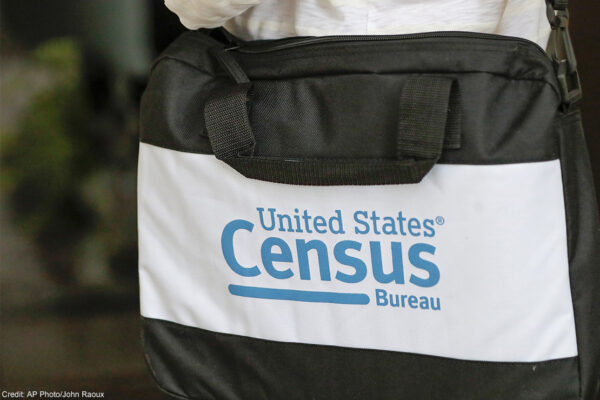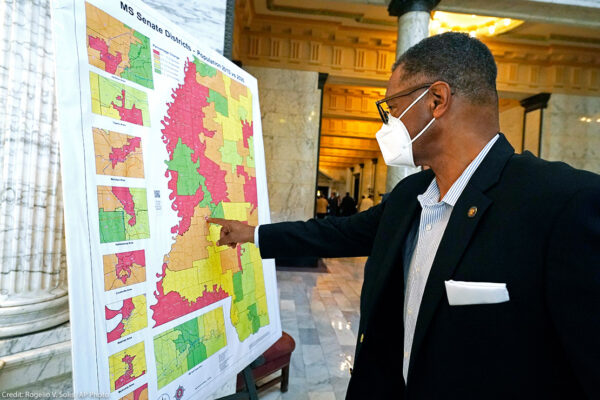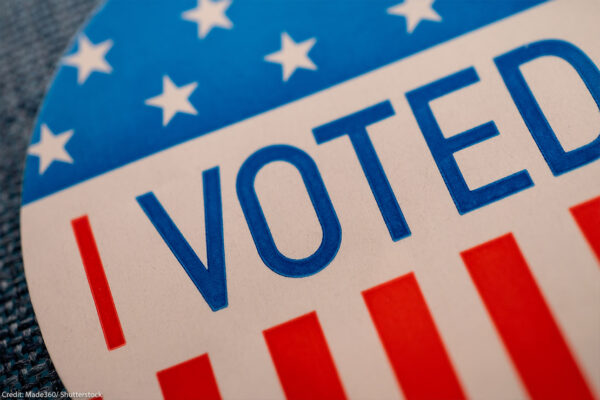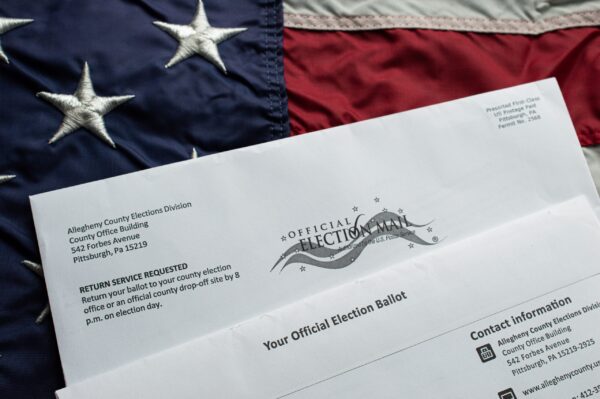Supreme Court Term 2025-2026
Weâre breaking down the cases we've asked the court to consider this term.
Latest Case Updates
Ongoing
Updated February 18, 2026
Ongoing
Updated January 26, 2026
Ongoing
Updated January 16, 2026
Ongoing
Updated January 9, 2026
Featured
Missouri
Feb 2026

Voting Rights
Missouri v. U.S. Department of Commerce
A coalition of civil rights and immigrant-rights organizations has moved to intervene as defendants in a lawsuit that threatens to dismantle the Constitutionâs long-standing requirement that the decennial census count all people living in the United States. Missouri asks the court to exclude undocumented immigrants and people living in the country on temporary visas from the census count used to determine congressional representationâan unprecedented move that would upend more than two centuries of constitutional practice.
Mississippi
Dec 2025

Voting Rights
White v. Mississippi State Board of Elections
District lines used to elect Mississippiâs Supreme Court have gone unchanged for more than 35 years. Weâre suing because the current lines crack the Mississippi Delta and dilute the voting strength of Black Mississippians in state Supreme Court elections, in violation of the Voting Rights Act.
Court Case
Dec 2025

National Security
Human Rights
FOIA Case Seeking the Trump Administrationâs Legal Justification for Deadly Boat Strikes
The Department of Justiceâs Office of Legal Counsel (âOLCâ) authored a legal opinion that reportedly claims to justify the Trump administrationâs illegal lethal strikes on civilians in boats in the Caribbean Sea and eastern Pacific Ocean. Media reports indicate that, in addition to claiming that the strikes are lawful acts in an alleged âarmed conflictâ with unspecified drug cartels, the OLC opinion also purports to immunize personnel who authorized or took part in the strikes from future criminal prosecution. Because the public deserves to know how our government is justifying these illegal strikes, and why they think the people who carried them out should not be held accountable, the šėÐÓĘÓÆĩ is seeking immediate release of the OLC legal opinion and related documents pursuant to the Freedom of Information Act.
U.S. Supreme Court
Dec 2025

Immigrants' Rights
Barbara v. Donald J. Trump
President Trump is attempting to undermine the promise of birthright citizenship to children born on U.S. soil. But the šėÐÓĘÓÆĩ and partners are fighting to protect the rights of citizens that are plainly stated in the Constitution, federal statute, and reaffirmed by the Supreme Court for more than a century. Weâre arguing against the Trump administration in the Supreme Court and are confident we will win.
U.S. Supreme Court
Nov 2025

Voting Rights
Racial Justice
Allen v. Milligan
Whether Alabamaâs congressional districts violate Section 2 of the Voting Rights Act because they discriminate against Black voters. We succeeded in winning a new map for 2024 elections which, for the first time, has two congressional district that provide Black voters a fair opportunity to elect candidates of their choosing despite multiple attempts by Alabama to stop us at the Supreme Court. Despite this win, Alabama is still defending its discriminatory map, and a trial was held in February 2025 to determine the map for the rest of the decade.
In May 2025, a federal court ruled that Alabama's 2023 congressional map both violates Section 2 of the Voting Rights Act and was enacted by the Alabama Legislature with racially discriminatory intent.
Washington, D.C.
Oct 2025

Voting Rights
League of Women Voters Education Fund v. Trump
On March 25, 2025, in a sweeping and unprecedented Executive Order, President Trump attempted to usurp the power to regulate federal elections from Congress and the States. Among other things, the Executive Order directs the Election Assistance Commissionâan agency that Congress specifically established to be bipartisan and independentâto require voters to show a passport or other citizenship documentation in order to register to vote in federal elections. If implemented, the Executive Order would threaten the ability of millions of eligible Americans to register and vote and upend the administration of federal elections.
On behalf of leading voter registration organizations and advocacy organizations, the šėÐÓĘÓÆĩ and co-counsel filed a lawsuit to block the Executive Order as an unconstitutional power grab.
U.S. Supreme Court
Oct 2025

Voting Rights
State Board of Election Commissioners v. Mississippi State Conference of the NAACP
Mississippi has a growing Black population, which is already the largest Black population percentage of any state in the country. Yet. Black Mississippians continue to be significantly under-represented in the state legislature, as Mississippiâs latest districting maps fail to reflect the reality of the stateâs changing demographics. During the 2022 redistricting process, the Mississippi legislature refused to create any new districts where Black voters have a chance to elect their preferred representative. The current district lines therefore dilute the voting power of Black Mississippians and continue to deprive them of political representation that is responsive to their needs and concerns, including severe disparities in education and healthcare.
U.S. Supreme Court
Oct 2025

Voting Rights
Louisiana v. Callais (Callais v. Landry)
Whether the congressional map Louisiana adopted to cure a Voting Rights Act violation in Robinson v. Ardoin is itself unlawful as a gerrymander.
Missouri
Sep 2025

Voting Rights
Wise v. Missouri
In unprecedented fashion, the State of Missouri has redrawn the district lines used for electing members of Congress for a second time this decade. These new district lines are gerrymandered and will harm political representation for all Missourians, particularly Black residents in Kansas City, who have been divided along racial lines.
All Cases
1,677 Court Cases

Texas
Jan 2026
LGBTQ Rights
PFLAG v. Abbott
The šėÐÓĘÓÆĩ, Lambda Legal, the šėÐÓĘÓÆĩ of Texas, and Baker Botts filed a lawsuit in Texas State Court on behalf of PFLAG National and three Texas families. This is the second of two lawsuits challenging unlawful attempts to ban essential health care for transgender youth by Texas state leaders.
Explore case
Texas
Jan 2026

LGBTQ Rights
PFLAG v. Abbott
The šėÐÓĘÓÆĩ, Lambda Legal, the šėÐÓĘÓÆĩ of Texas, and Baker Botts filed a lawsuit in Texas State Court on behalf of PFLAG National and three Texas families. This is the second of two lawsuits challenging unlawful attempts to ban essential health care for transgender youth by Texas state leaders.

Indiana
Jan 2026
LGBTQ Rights
Metropolitan School District of Martinsville v. A.C.
Alongside his parents, A.C., a boy who was barred from using the boysâ restroom with the other boys because he is transgender, has sued his Indiana school district for violating his right under federal law to attend school.
Explore case
Indiana
Jan 2026

LGBTQ Rights
Metropolitan School District of Martinsville v. A.C.
Alongside his parents, A.C., a boy who was barred from using the boysâ restroom with the other boys because he is transgender, has sued his Indiana school district for violating his right under federal law to attend school.

Pennsylvania
Jan 2026
Voting Rights
United States v. Pennsylvania
The Department of Justice (DOJ) sued the State of Pennsylvania, seeking private, confidential voter data that is protected by state privacy laws. DOJâs efforts appear to be part of an effort to build a national voter database without congressional authorization and to improperly question the validity of state voter rolls.
Explore case
Pennsylvania
Jan 2026

Voting Rights
United States v. Pennsylvania
The Department of Justice (DOJ) sued the State of Pennsylvania, seeking private, confidential voter data that is protected by state privacy laws. DOJâs efforts appear to be part of an effort to build a national voter database without congressional authorization and to improperly question the validity of state voter rolls.

Washington, D.C.
Jan 2026
Free Speech
The New York Times Co. v. Department of Defense
Explore case
Washington, D.C.
Jan 2026

Free Speech
The New York Times Co. v. Department of Defense

Georgia
Jan 2026
LGBTQ Rights
Gaines v. NCAA
The National Womenâs Law Center is intervening in defense of transgender athletes in a lawsuit brought against the National Collegiate Athletics Association attempting to force the organization to implement a nationwide and categorical ban on the participation of transgender college athletes. Founded in 1972, NWLC fights for gender justice working across the issues that are central to the lives of women and girls.
Explore case
Georgia
Jan 2026

LGBTQ Rights
Gaines v. NCAA
The National Womenâs Law Center is intervening in defense of transgender athletes in a lawsuit brought against the National Collegiate Athletics Association attempting to force the organization to implement a nationwide and categorical ban on the participation of transgender college athletes. Founded in 1972, NWLC fights for gender justice working across the issues that are central to the lives of women and girls.
